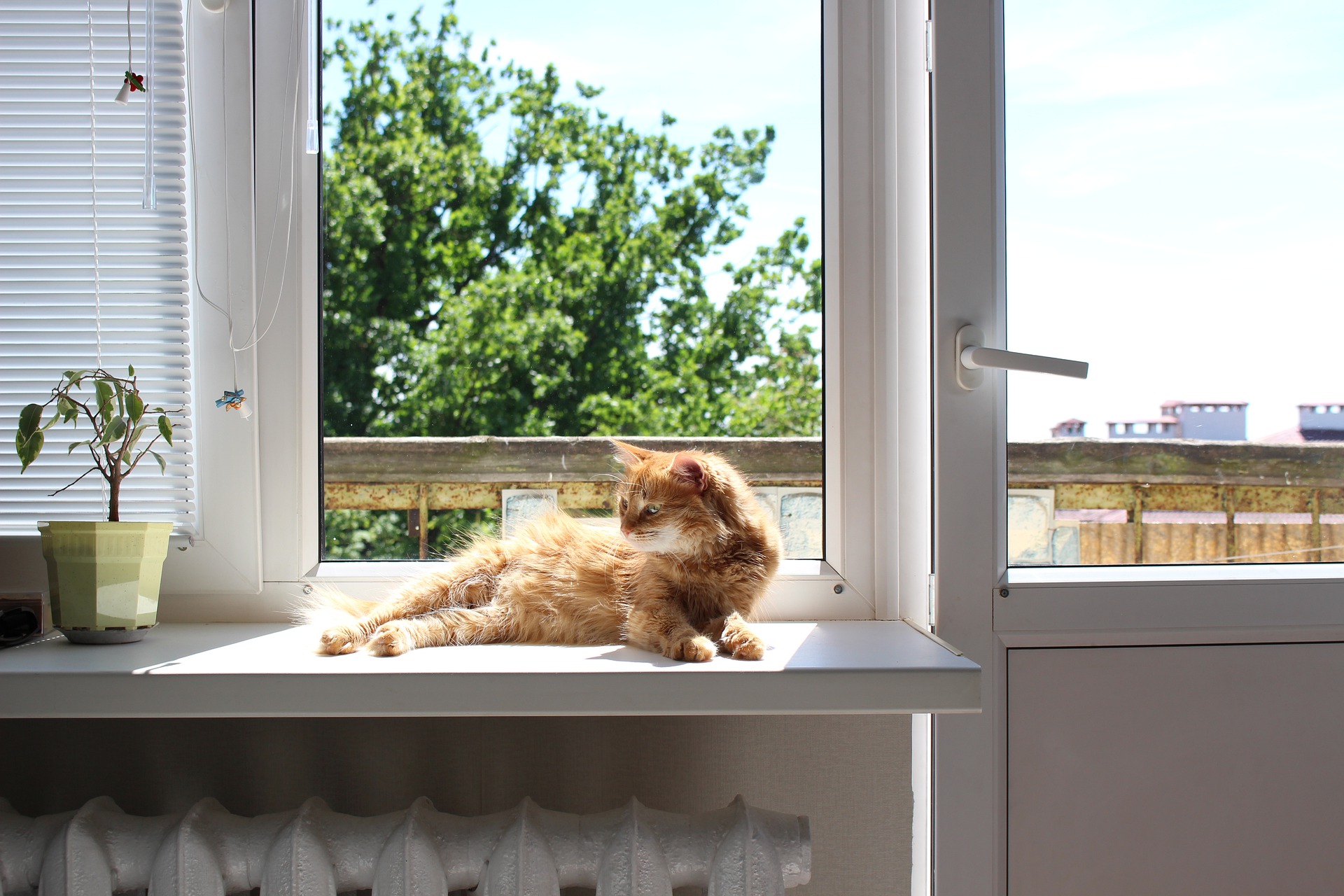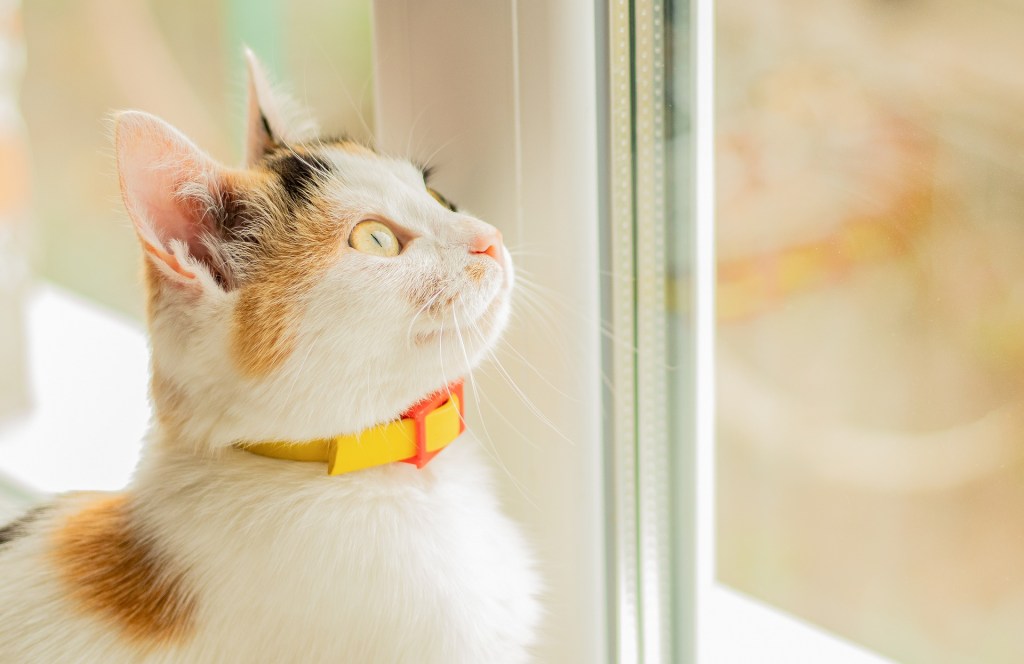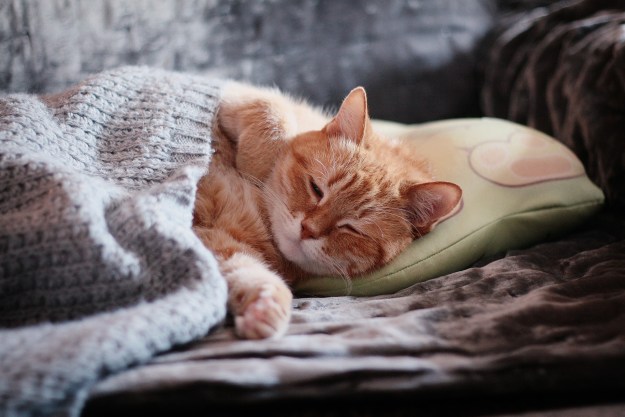Windows are like cat TV, and chances are, your cat spends plenty of time each day climbing into and sitting in your home’s windows. A cat window box or perch can give your kitty an extra-special vantage point so he never misses a minute of the action taking place outdoors. You can spot some common signs that can indicate your cat would benefit from a window box. If you’ve been considering getting your cat a perch or a box, then it’s also important to know what to look for in a quality product, so you make the right choice for your cat.

Your cat is fixated on the outdoors
While keeping your cat indoors is the best choice for his safety, it means that he has limited exposure to the outdoors, which can be frustrating for cats. You might find that your cat becomes fixated on trying to see what’s going on outside, and depending on your home’s setup, he might knock objects over or break your blinds while trying to make a seat in a window.
A cat window box gives your cat a safe and comfortable spot to watch the outdoors. It can help keep him from knocking items off your windowsill, and it can encourage him to settle down and watch the outdoors from his designated spot.
Your cat is displaying negative behaviors
Stress and boredom can lead to all sorts of negative behaviors. You might notice that your cat is scratching your furniture or your walls, which can be an attempt to relieve extra energy or to mark his territory.
Other common negative behaviors include spraying or urinating in the home. While cats might do this for many reasons, your kitty might be reacting to stress and feelings of insecurity.
A window box may help relieve your cat’s stress by giving him a special space of his own. If your cat is hearing noises outside but can’t get a good vantage point, that may be contributing to his stress.
Your cat is unsettled
Cats who are lacking in interaction and stimulation can appear to be unsettled in your home. You might notice that your cat is vocalizing, pacing, or just otherwise restless.
A cat window box can help with this in multiple ways. The box gives your cat a great place to watch what’s going on outside, which makes for valuable mental stimulation. It can help fight boredom, especially when you’re not home, and keeps your cat entertained. The box also serves as a way for your cat to get up off the floor. Cats naturally feel safer in elevated spots and out of easy reach of other pets or humans. A window box can boost your cat’s feelings of security so he feels more settled in the home.

What to look for in a cat window perch
When choosing a window perch or box, there are a few important features to look for.
- A box needs to be fully enclosed and strong enough to keep your cat safe from predators. Look for weatherproof materials, like stainless steel mesh, to ensure that box will retain its security and safety long term.
- If you’re shopping for a perch, make sure you choose one that mounts securely and creates a stable platform. Different mounting systems are available, including some that mount right to your window sill and others that require a hardware installation. You’ll need to think about the option that’s best for your home.
- Finally, don’t forget to measure your window so you choose a product that will fit the space well.
A window perch or box can give your cat a space of his own that makes it easier and safer for him to check out what’s going on outside. It might be the perfect solution if your cat has extra energy, is unsettled, or demonstrates negative behaviors in your home. Even if your cat doesn’t seem to have these problems, giving him a perch or a window box is still a great way to keep him entertained. You’ll want to carefully choose the window where you install the unit, but often your cat will choose it for you — if he has a favorite window where he spends the most time, that’s the perfect place to install the perch or box.
Editors' Recommendations
- Wondering why cats chirp? Fascinating reasons why your cat chirps at birds (and you)
- How to cat-proof your balcony before the unthinkable happens
- There’s a totally normal reason cats throw up after eating grass – here’s why
- What you need to know about crating a cat at night
- This video of a confused kitty discovering a cat water fountain is adorable



